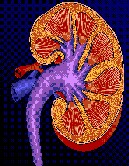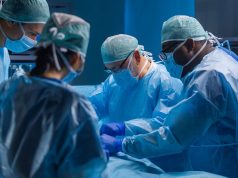Researchers find mild hypothermia boosts outcomes from deceased donors
THURSDAY, July 30, 2015 (HealthDay News) — Mild hypothermia could improve the functioning of kidneys in transplants from deceased donors, according to findings reported in the July 30 issue of the New England Journal of Medicine.
Claus Niemann, M.D., a professor of anesthesia and surgery at the University of California, San Francisco, and colleagues aimed to lower the risk of an immediate complication that’s more common with kidneys from deceased donors: delayed graft function. Niemann’s team randomly assigned organ donors (after declaration of death according to neurologic criteria) to either be managed the standard way — keeping the body at normal temperature — or to undergo mild hypothermia — cooling the body by a few degrees, to 94 or 95 degrees Fahrenheit.
The study ultimately enrolled 370 deceased donors, who provided kidneys to 572 people. In the end, kidneys from the hypothermia group functioned significantly better: 28.2 percent of those recipients had delayed graft function, versus 39.2 percent of patients who received a standard transplant. But, Niemann told HealthDay, hypothermia had its biggest impact on kidneys from less-than-ideal deceased donors — those older than 60, and those older than 50 with hypertension, mild kidney dysfunction, or a history of stroke. In those cases, hypothermia lowered the rate of delayed graft function from 56.5 to 31.0 percent.
The trial was stopped earlier than planned, at the recommendation of an independent panel, when it became clear that kidneys from the hypothermia group were working better. The approach “has the potential to radically change donor management and improve outcomes for organ recipients,” Ina Jochmans, M.D., Ph.D., of the University Hospitals Leuven in Belgium, told HealthDay. Jochmans coauthored an editorial on the study, along with Christopher Watson, M.D., a professor of transplantation at the University of Cambridge in the United Kingdom.
Copyright © 2015 HealthDay. All rights reserved.








